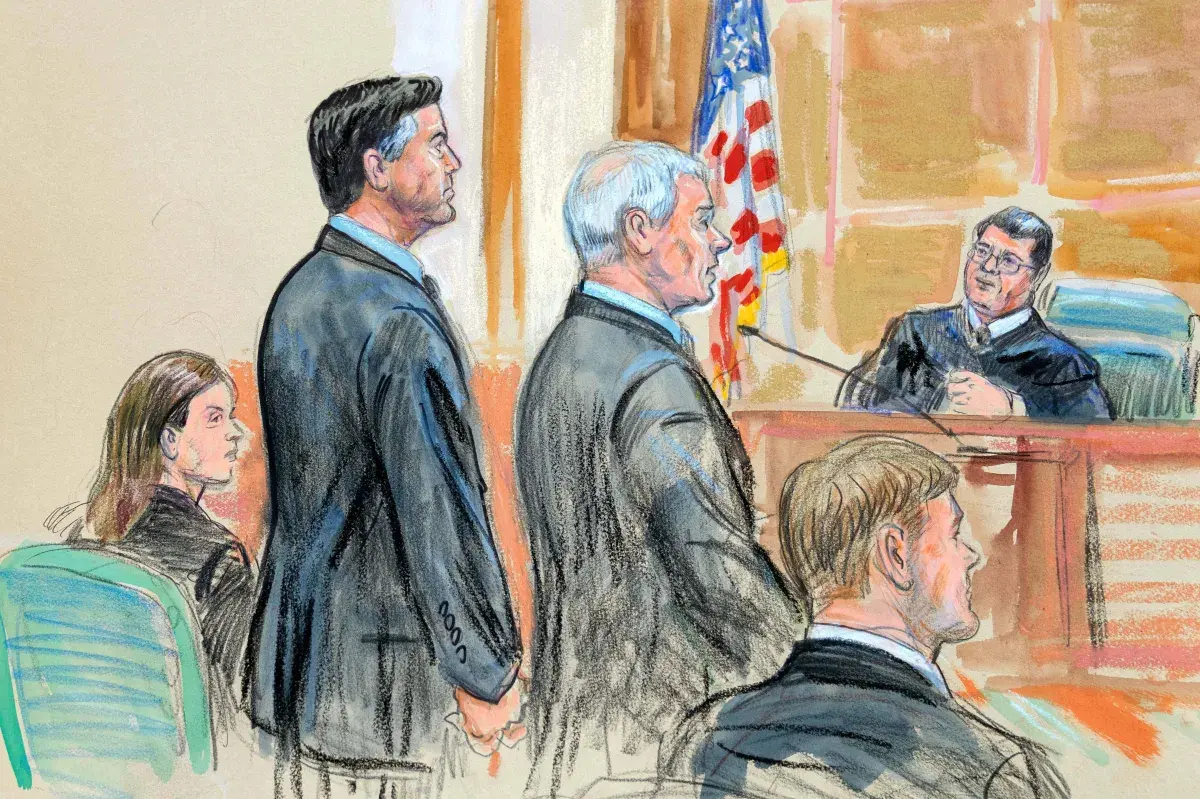Copyright Newsweek

Democrats have broken the Republican supermajority in the Mississippi state Senate for the first time in years, following court-ordered special redistricting elections intended to provide greater representation for the state’s Black voters. It comes as Democrats notched up wins in city and statewide elections across the country on Tuesday in what is being seen as a widespread rebuke of President Donald Trump and Republicans in Congress. Newsweek has contacted the Democratic Legislative Campaign Committee and the Mississippi GOP for comment. Why It Matters The outcome holds significance for not just Mississippi politics, but also the national landscape, as Democrats attempt to rebuild influence in the South and defend voting rights as legal battles over redistricting and the Voting Rights Act play out in federal courts. The results could determine how future legislative and congressional districts are drawn, impacting the balance of political power statewide and potentially at the federal level. What To Know On November 4, voters in Mississippi participated in special elections for six state Senate districts and one House district, following a federal court’s order to redraw legislative maps to increase the number of majority-Black districts. According to local news website Magnolia Tribune, Democrats gained two seats in the state Senate—Senate District 2 and Senate District 45—and secured additional House representation, with Justin Crosby’s victory in District 22. These gains reduced Republicans’ hold to 34 seats in the 52-member Senate, ending the GOP’s supermajority. The redistricting stemmed from a 2022 lawsuit brought by the Mississippi NAACP, alleging that the state had diluted Black voting power despite Black residents comprising about 40 percent of the population. In April 2025, a panel of federal judges ordered the creation of more majority-minority districts, leading to special elections in contested areas. The New York Times reported that the ruling was unanimous and all three judges were appointed by Republican former President George W. Bush. The results in the seven special elections as reported by Magnolia Tribune were: Senate District 1: Incumbent Republican Michael McLendon won reelection with 72 percent of the vote to Democrat Chris Hanna’s 28 percent. Senate District 2: Democrat Theresa Isom won with 63 percent to Republican Charlie Hoots’ 37 percent. Senate District 11: Incumbent Democrat Reginald Jackson retained his seat with 67 percent of the vote over Republican Kendall Prewett’s 33 percent. Senate District 19: Incumbent Republican Kevin Blackwell secured another term with 53 percent of the vote to Democrat Dianne Black’s 47 percent. Senate District 44: Republican Chris Johnson was re-elected with 70 percent of the vote over Democrat Shakita Taylor’s 30 percent. Senate District 45: Democrat Johnny DuPree captured the seat with 71 percent of the vote, defeating Republican Anna Rush’s 29 percent. House District 22: Democrat Justin Crosby prevailed over incumbent Republican Jon Lancaster with 53 percent in a newly redrawn district. Most of the races were shaped by demographic changes, with the remapped districts now majority Black and giving new opportunities for Democratic candidates. The results are not considered final or official until certified by county election boards. Three other special elections were held to fill vacancies left by lawmakers resigning before their terms ended, with two of those advancing to runoffs as no candidate received more than 50 percent. What People Are Saying Heather Williams, president of the Democratic Legislative Campaign Committee, told Magnolia Tribune: "Tonight is an exciting victory for the DLCC and state Democrats in Mississippi who have worked tirelessly to make inroads in tough territory." Johnny DuPree, who flipped state Senate District 45, told WDAM: "I think it’s wonderful that the citizens of District 45 are satisfied." What Happens Next The Democratic gains halt the Republican supermajority in the state Senate, meaning Republicans can no longer pass certain legislation—such as appropriations and constitutional amendments—without at least some cooperation from across the aisle. However, they remain in overall control of both legislative chambers and the governorship. The remaining runoff elections will shape the final balance in the state House and Senate. Attention is now turning to whether these Democrat-held gains can endure. Legal and political battles over redistricting are expected to continue, particularly as the U.S. Supreme Court considers the future of Voting Rights Act protections for majority-minority districts. Mississippi’s Republican-dominated legislature may seek to redraw maps again depending on further court action, according to The New York Times.



